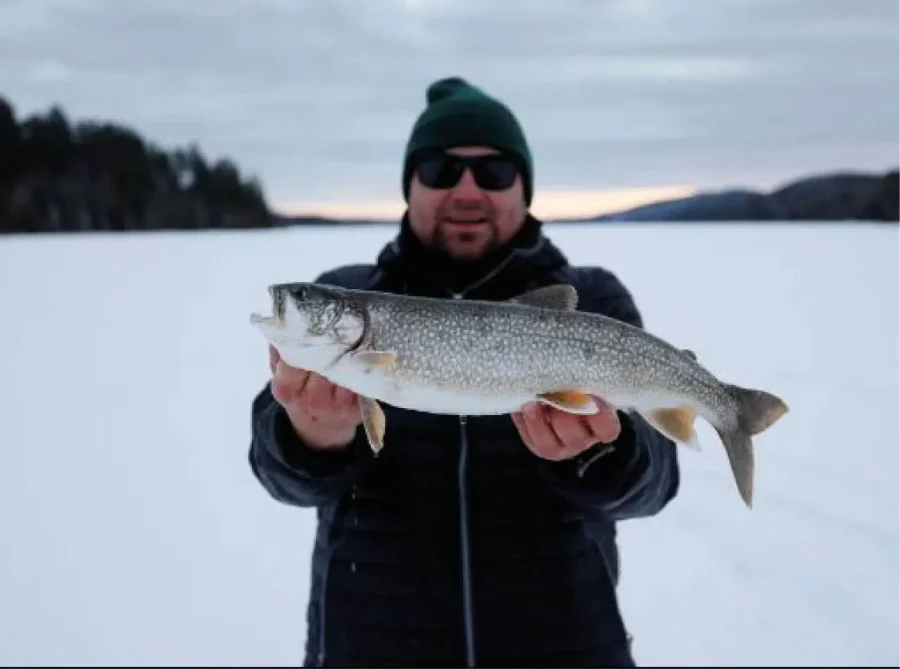Most winters, at least once a week, Mike Diabo will snowmobile to the shores of one of his local lakes in southern Quebec, carry his fishing gear across the frozen surface, and drill down through the ice to reveal the dark water beneath.
There he’ll fish for northern pike, bass, trout, and whitefish to supplement his family’s diet, continuing the traditions of his Anishinabe ancestors, part of the Algonquin First Nation of eastern Canada.
But this year ice-fishing season started late, delayed by a warm winter and fluctuating temperatures that left the ice on Bitobi and Cedar Lakes – his two favourite haunts – slushy and dangerously thin until a cold snap finally arrived in early February.
This winter is on track to be among the five warmest in southern Quebec since records began in 1938, according to the Weather Network. In Canada’s capital Ottawa, just over an hour south of the Kitigan Zibi reserve where Diabo and his family live, it’s the first in which the Rideau Canal Skateway has been unable to open for ice skating.
Diabo, 46, has only been out fishing four times so far this winter. Usually he would start no later than early January. He blames climate change for the unseasonal weather and worries ice fishing season will only get shorter in future.
The thin ice has deprived his family of an important part of their diet and a practice that roots them to their cultural heritage and homeland. The limited fishing opportunities also underscore the risk climate change presents to many Canadian First Nations that rely on hunting, fishing and foraging to help boost their nutrition and combat food insecurity.—INP










